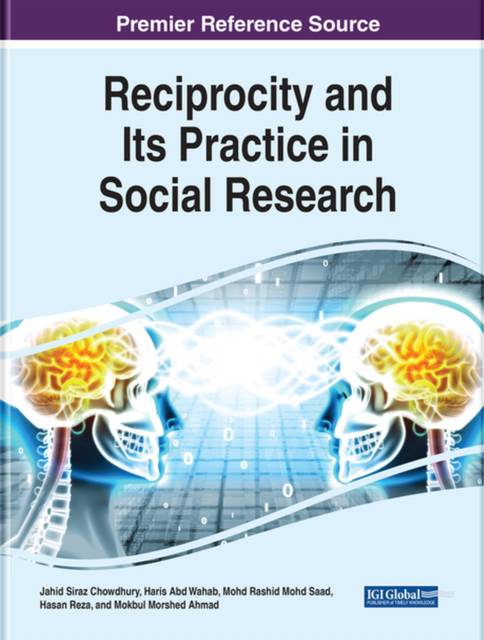
- Afhalen na 1 uur in een winkel met voorraad
- Gratis thuislevering in België vanaf € 30
- Ruim aanbod met 7 miljoen producten
- Afhalen na 1 uur in een winkel met voorraad
- Gratis thuislevering in België vanaf € 30
- Ruim aanbod met 7 miljoen producten
Zoeken
Reciprocity and Its Practice in Social Research
Jahid Siraz Chowdhury, Haris Abd Wahab, Rashid Mohd Saad
Hardcover | Engels
€ 310,45
+ 620 punten
Uitvoering
Omschrijving
Reciprocity has been critical in the philosophy and social sciences of the 20th century. Over the last seven decades, several countries settled by European powers have become autonomous, and returning has become a challenge. Consequently, writing on reciprocity as a central theme requires time and implies a deep dedication to the community. There is a need to explore the factors and policies behind the study agendas and secret philosophies before and after European involvement. Reciprocity and Its Practice in Social Research aims to open the controlled consciousness of self as a human being and then as a scholar to the community via the methodological lens. It analyzes reciprocity from the Greek tradition to Medeabale Arab to the early colonial or pre-colonial period. It specifically addresses the benefit of social research on the community and seeks ways to revolutionize and improve current research and academic processes. Covering topics such as the philosophy of science, indigenous science, and Western metaphysics, this book is an essential resource for anthropologists, philosophers, sociologists, university faculty and administration, students of higher education, librarians, researchers, and academicians.
Specificaties
Betrokkenen
- Auteur(s):
- Uitgeverij:
Inhoud
- Aantal bladzijden:
- 284
- Taal:
- Engels
Eigenschappen
- Productcode (EAN):
- 9781799896029
- Verschijningsdatum:
- 27/05/2022
- Uitvoering:
- Hardcover
- Formaat:
- Genaaid
- Afmetingen:
- 216 mm x 279 mm
- Gewicht:
- 948 g

Alleen bij Standaard Boekhandel
+ 620 punten op je klantenkaart van Standaard Boekhandel
Beoordelingen
We publiceren alleen reviews die voldoen aan de voorwaarden voor reviews. Bekijk onze voorwaarden voor reviews.











